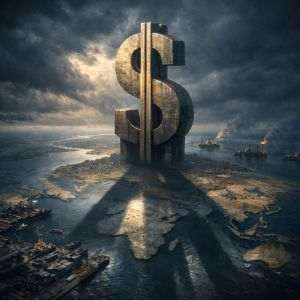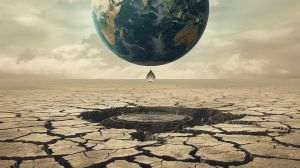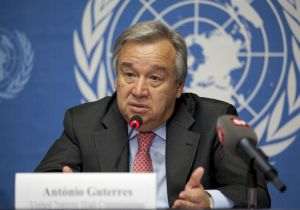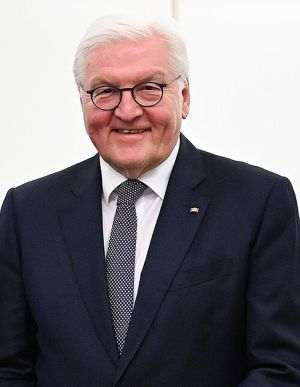
Asia's largest economy has recently entered a new stage of trade relations with the rest of the world, in which the main partners are developing economies, according to an analysis in the Wall Street Journal.
Four decades after the initiation of market reforms and opening up to the rest of the world, the cumulative volume of China's trade with the United States, Europe and Japan has been exceeded by China's trade with developing countries, and the divergence has widened in the second half of this year (see chart 1).

Data presented by the WSJ shows that trade with countries in Latin America, Africa and developing countries in Asia accounts for about 36% of China's total foreign trade, while the share of trade with developed countries has shrunk to 33%.
Part of the trend is explained by the relocation of some factories from China to Vietnam, India or Mexico to avoid the sanctions imposed by the US government, as the WSJ also points out, but "China's growing expertise in the field of smartphones, cars and machines at affordable prices attracts customers from developing countries and contributes to this change at the expense of Western rivals".
China's trade with Southeast Asia surpassed that with the US in 2019, and China currently trades more with Russia than with Germany. The trends in exchanges between China and Brazil show that soon this bilateral relationship will be more important than that between China and Germany.
Another major trend is the redirection of China's investments abroad, according to data from the American Enterprise Institute taken by the WSJ. While investment in Europe and the United States declined significantly between 2018 and 2023, especially in Europe, China's investment in Africa, East Asia, South America and the Middle East saw massive growth. As the WSJ points out, China's investments go mainly to countries rich in mineral resources.
"The world is splitting into rival spheres," said Noah Barkin, an adviser at Rhodium Group, a New York consulting firm, and "there is a risk that this momentum will accelerate over time and become more difficult for governments to manage." .
European companies have begun to reconsider their expansion plans in China, and now the new destination seems to be America, including as a result of the incentives given to domestic manufacturers through the government programs of the Biden administration.
However, "a complete decoupling between China and the West is not in the books, assuming there is no military conflict," as the WSJ also points out, because "China's low production costs and vast consumer market still make it indispensable for many companies".
An example offered is that of the giant BASF, which has planned investments in China of around 10.5 billion euros until 2030, mainly aimed at the petrochemical complex in Zhanjiang. Basically, BASF moves its main production capacities to where it has the best and cheapest access to natural gas from Russia.
The insistence of political leaders in Europe and the United States to reduce their "exposure" and dependence on China seems to have been anticipated in Beijing, where economic policy has encouraged the "internalization" of supply and production chains.
Under these conditions, "China has become less and less dependent on imports from other countries for the development of its industrial economy", as the WSJ also points out based on data from the Netherlands Bureau for Economic Policy Analysis (CPB), published monthly in the report on the evolution global trade (see graph 2).

Thus, the ratio between the volume of imports and that of industrial production decreased from about 1.5 two decades ago to about 0.6 in the case of China, while for the United States this ratio increased from 1 to almost 1.3 in the same interval.
The increase in the import dependence of the industrial sectors in the USA and Europe shows that all the statements of political leaders regarding reshoring (the relocation of production capacities between national borders or at least in countries considered friendly) are nothing but empty words.
Former investment banker David Goldman has been warning for a long time, in articles in the Asia Times, that the decoupling of the United States from China is out of the question, given that the American industrial sector shows an extremely high dependence on capital goods from China.
"China's growing dominance of global supply chains is the result of chronic underinvestment in US manufacturing," Goldman points out.
The size of the problem is also highlighted by the British economist Philip Pilkington on his Twitter account, where he shows that imports of capital goods from China represented about 5% of the total fixed capital formation in the US in 2000, and currently the share is about 20% .
"If trade between the U.S. and China were ever seriously disrupted, the U.S. economy would not only face a shortage of consumer goods imports, but the entire domestic productive sector would be seriously affected in terms of creating new production capacity and the repair and replacement of existing capacity," writes Pilkington.
Recently, David Goldman issued another warning. "We are losing ground, not gaining it. And we will continue to lose ground until we reverse the decline in industrial investment of the last two decades. Subsidized chip factories do not count," writes the former investment banker on his Twitter account and makes link to an article in Nikkei Asia highlighting China's engagement in its own decoupling campaign.
The article by Peter Tirschwell, vice president of supply chains at S&P Global Market Intelligence, shows that "China's export dominance is getting stronger, not weaker."
In Tirschwell's opinion, the headlines in the international press, which focus on the bankruptcy of real estate developers, the moderation of economic growth or the rise of unemployment among young people, ignore a particularly important aspect, that of engaging China in its own decoupling campaign by reducing dependence on imports industrial, the diversification of export markets and the search for ways to avoid the obstacles created by American tariffs.
"China's ability to hold on to market share in the face of a concerted effort by the US and its allies to de-risk and diversify supply chains shows how traditional trade relationships are breaking down and reveals the changing structure of trade international in the post-globalized world economy", is Peter Tirschwell's conclusion.
Perhaps the time has come for the recognition of the new reality by the political leaders in the USA and Europe, who should try other approaches, instead of the imperative demands addressed to the leaders in Beijing and the attitudes of escaped colonial powers, desperate that their influence no longer it's worth nothing.
This desperation is felt by all the countries of the Global South, which now turn their hopes to the BRICS alliance.
The new realignment will allow the locomotive of the global economy to move on to uncoupling the wagons that do not keep pace or even try to brake the march towards a new international framework of development.























































